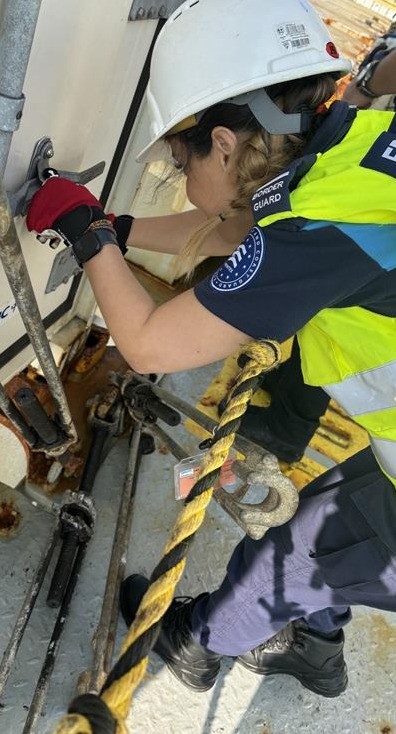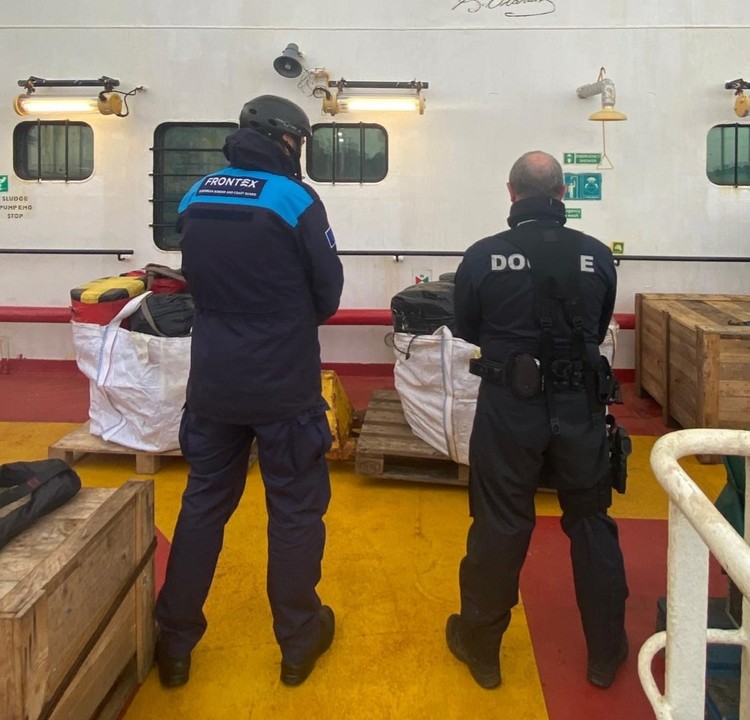More than 3 tons of cocaine
have been stopped from reaching Europe’s streets thanks to a large-scale
international operation targeting maritime drug smuggling. Frontex, the
European Border and Coast Guard Agency, played a central role in co-leading
the
action, which ran throughout June.
Operation White Sea V
focused on smuggling routes in the Atlantic, the North Sea, and the English
Channel. It brought together forces from 12 countries, including Belgium,
France, Spain, and the United Kingdom, along with Frontex, Europol, and MAOC-N.
- 3.3 tons of cocaine seized
- 951 ships tracked
- 119 ships inspected
- 13 arrests
One of the biggest hauls came
on 23 June, when Belgian authorities found 647 kg of cocaine hidden deep
inside a tanker from Brazil docked in Zeebrugge. Five crew members were
arrested and remain in custody.
Frontex provided real-time
ship tracking, aerial surveillance flights, and deployed six cross-border crime
officers to support boarding and inspection teams on the ground, including during
the Zeebrugge operational period.
Operation White Sea V, which
took place in the month of June, reflects a growing trend of traffickers using
the sea to smuggle large quantities of cocaine. Frontex remains fully committed
to supporting Member States in disrupting organized crime and keeping European
borders secure.
Frontex played a key part in the operation by tracking nearly 1 000 ships and providing the tools needed to support national teams. We sent six of our experts to assist with inspections on the ground, including the one that led to the major seizure in Zeebrugge.
We also contributed from the air, coordinating 12 surveillance flights over key sea routes. These flights, which covered nearly 25 hours in total, helped spot suspicious activity and guide enforcement teams.
The operation highlights a worrying trend in sea-based cocaine smuggling. Frontex will continue working closely with national authorities to fight organized crime and protect Europe's borders.
The European Multidisciplinary
Platform Against Criminal Threats (EMPACT) tackles the most important threats
posed by organized and serious international crime affecting the EU. EMPACT
strengthens intelligence, strategic and operational cooperation between national
authorities, EU institutions and bodies, and international partners. EMPACT
runs in four-year cycles focusing on common EU crime priorities.


